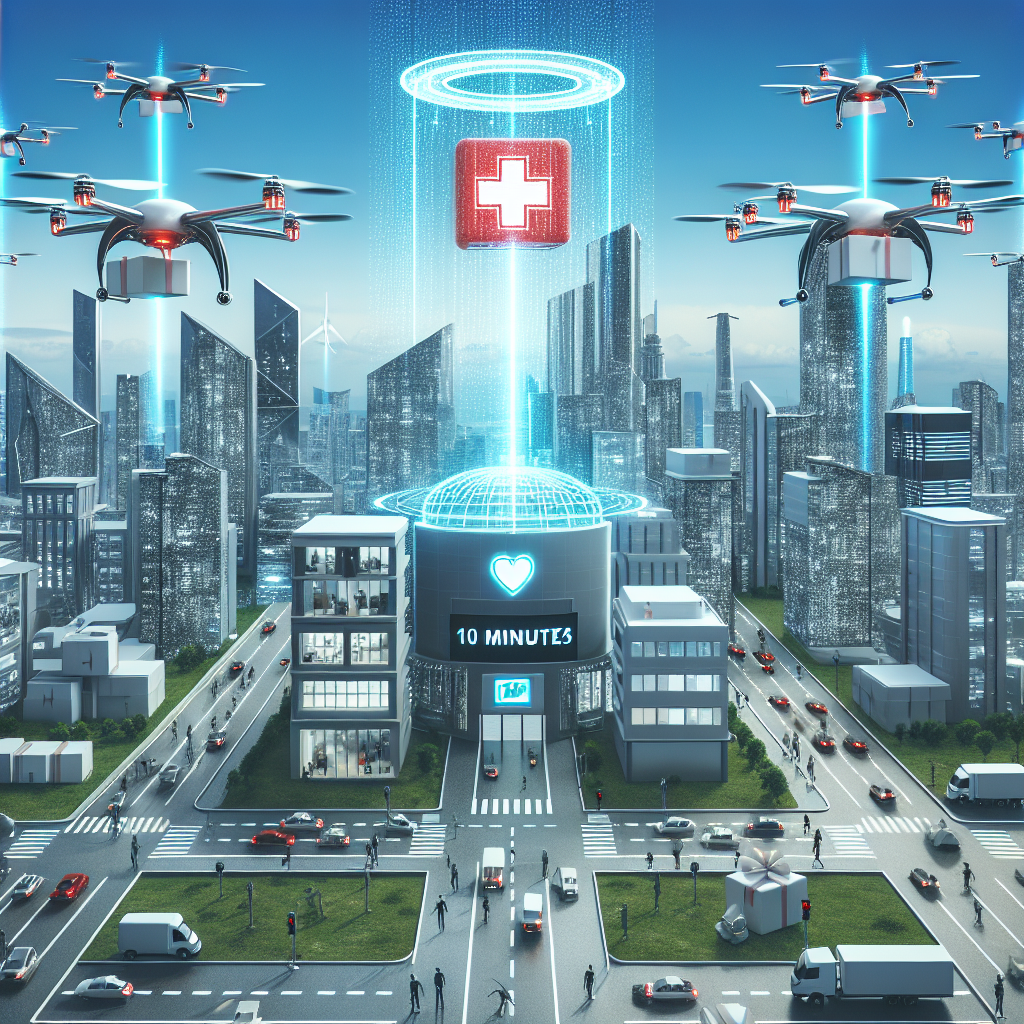In a bid to revolutionize the pharmaceutical delivery sector, Zepto, known for its lightning-fast grocery delivery services, has recently launched a new venture that promises to deliver medicines to customers within 10 minutes. The service was reported first by Startup News in their article titled “Zepto Debuts 10-Minute Medicine Delivery Service”.
Building on its robust logistics framework primarily structured around densely located micro-warehouses, Zepto’s pivot into the health sector marks a significant step. The startup harnesses sophisticated tech solutions and localized supply chains, enabling it to offer unprecedented delivery times which it now seeks to replicate in the essential medicines space.
Zepto’s new service has been rolled out initially in select metropolitan areas, where the demand for quick delivery of healthcare products is notably high. The company aims to address urgent medicinal needs where traditional pharmacy trips could pose logistical challenges or delays which could exacerbate health issues.
This latest move by Zepto taps into a growing trend where convenience is paramount, and the health sector is no exception. With healthcare increasingly inching towards digital spaces — spurred largely by the demands set in the aftermath of the global health crisis — services like these could represent a pivotal transformation in how consumers approach medical needs.
Critics of rapid delivery services often highlight the potential strain on accuracy and the risk of errors in the haste to deliver. However, proponents argue that with the right checks and balances, such systems can significantly enhance the user experience without compromising safety. To address these concerns, Zepto has implemented multiple verification stages during the ordering and dispatching process to ensure the correct handing over of pharmaceuticals.
Additionally, Zepto’s entry into this market underscores a potential shift towards more integrated health tech solutions. By providing a seamless interface for ordering prescriptions that are fulfilled with such expediency, Zepto is positioning itself at the conjunction of technology and healthcare—a junction that is only expected to grow.
The health sector’s response to Zepto’s service could likely influence how other companies view the potential for tech-driven disruptions in medical supply chains. While the immediate customer base might be limited to regions with access to Zepto’s express service, the model, if successful, can be anticipated to set a precedent for similar innovations in the broader healthcare market.
Moreover, the rise of such services is concurrently raising discussions regarding regulations and standards that need to be established to safeguard consumer interests without stifling innovation. As companies like Zepto continue to push the envelope on what tech can achieve in traditional sectors, the role of regulatory bodies becomes increasingly complex.
In conclusion, Zepto’s foray into rapid delivery of medicines is not just an expansion of its business model but a test case for the integration of advanced logistics technology in providing critical healthcare services. Whether this could lead to a broader transformation in the pharmaceutical delivery space remains to be seen, as does the response from both consumers and healthcare professionals to this novel service.



